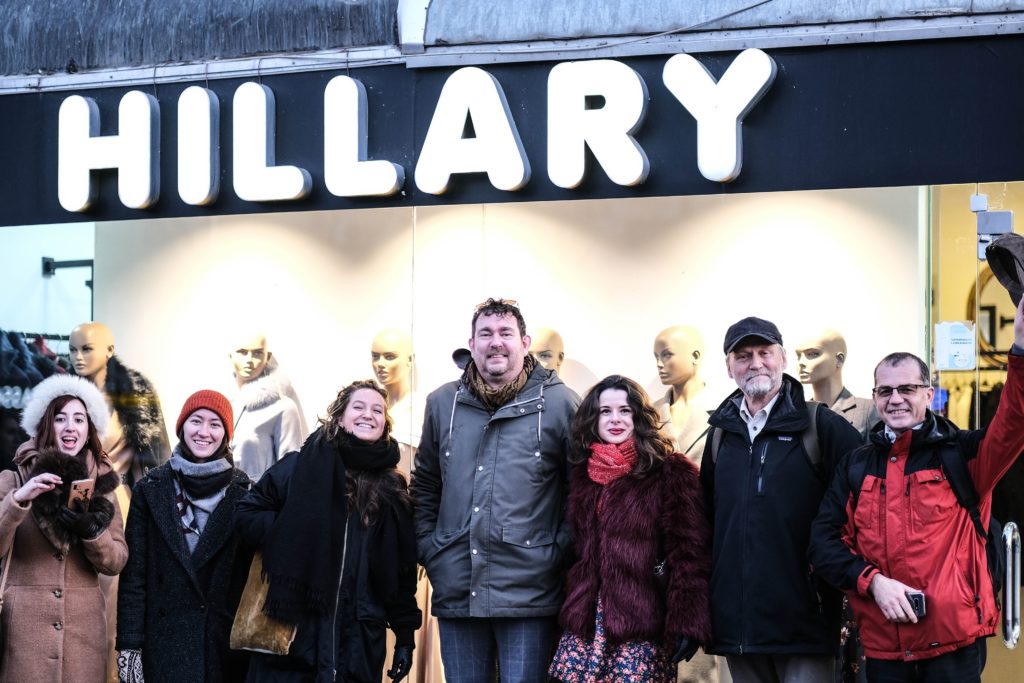For the project EU project Common Ground Common Future (Erasmus+ Strategic Partnership) we are looking for narratives that connect. In line with this we develop strategies with which people can better recognize and challenge damaging stories (fake news, hate speech).
In the week of the 20th – 24th of January all partners of the project came together for a joint staff training week in Pristina. We learned from experts in the field of storytelling narrative psychology and social work. This week was hosted by Youth Initiative for Human Rights – Kosovo; Marigona Shabiu and Bjeshka Guri.
Getting to know each other and especially building trust among the group was very important. We introduced ourselves through various exercises. Peter Fruhmann from Storytelling Centre introduced the subject identity. Our task was to think about what identity means to us and how we identify ourselves. We discussed and shared our thoughts like: ‘Our identity is formed by all the groups we think we are in. It is what stories we take with us and can be described with the use of animals; especially what characteristics we give to those animals.’ If people struggle with finding their identity or have a hard time giving words to this, we can ask them questions like: ‘Who is important to you? Can you describe this person? What memories from your youth can you remember?’
Peter also opened a discussion on empathy with the example ‘Mama’s last hug’ and he showed us a video on empathy vs sympathy by Brene Brown. We discussed the roles of empathy and sympathy; when do we show which one? What is with regards to that the role of a facilitator? Arjen Barel, director of Storytelling Centre, discussed how we make space for empathy in group dynamics.
Bintang from OsloMet introduced ‘the mare, memories and mimesis’ with storytelling exercises. It showed us how the listener has a completely different vision on the story told than the storyteller.
For one exercise we were split up in group A and B. Group A had to tell a story, group B had to listen and raise their hand for 5 seconds whenever they felt like reacting to the story. The aim of this exercise was to see how concentration comes and goes for a teller whenever something happens with the listener.

We learned a lot from each other. Each of us had something to teach that the other one did not know yet. We came home with more knowledge and skills with regards to storytelling and narrative therapy that we can apply in designing new tools for creating common ground in communities all over Europe.
The Storytelling Centre Amsterdam organises storytelling workshops and trainings for companies, civil society organisations, NGO’s and for you.
Interested in what we could do for you, your company or organisation?
For you as a human
(in dutch, but possible in english)
For companies & organisations